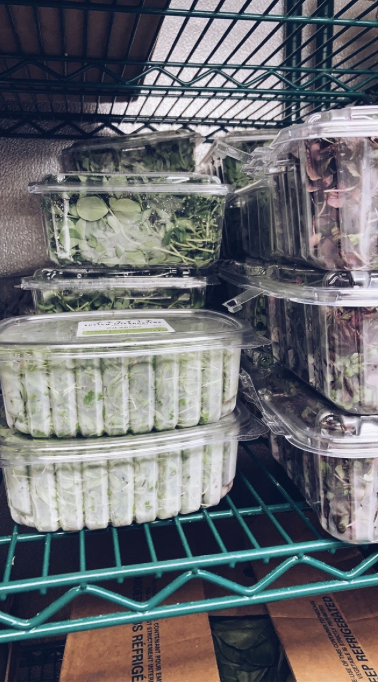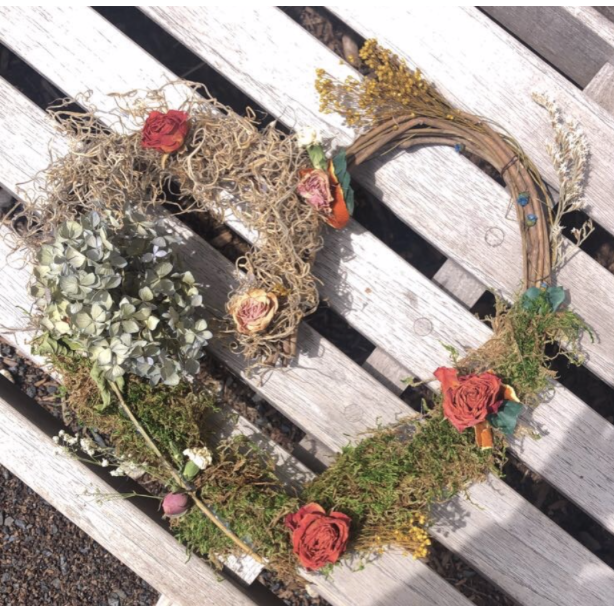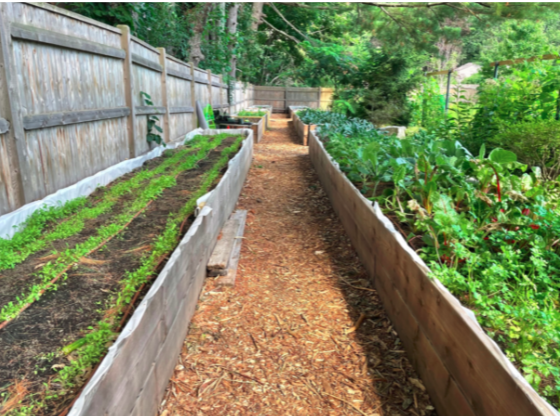Summer Internships for SFF Students
After graduation, Sustainable Food & Farming students engage in work ranging from food production, community organizing in the food system, culinary and farm-to-table models, and even horticultural therapy. They can get started making these connections and getting some experience while they are in school. SFF students are able to earn credit for doing hands-on work in a field of interest, and we have a wide array of internships and independent studies that students undertake. Check out some of the internships that SFF students got up to this past summer.
Christina Mehlhorn: Boston Microgreens
Read the introduction to Christina’s internship here, and learn more about her summer work at her website here.


“This summer I have the opportunity to intern at Boston Microgreens. Located on West Broadway Street in South Boston, the modern urban farm was created in 2018 by Northeastern graduate Oliver Homberg. The company grows a wide variety of 50+ types of microgreens for local restaurants in the city of Boston. Customers are given the opportunity to tailor their orders to the exact size and mix of what they need for their individual menus. In addition to their chef’s menu, the company offers a small residential menu which includes their esteemed nutrition mix as well as some of their popular cilantro and basil microgreens. Furthermore, the company prides itself on its use of renewable energy and ability to grow without the use of any pesticides, meaning the microgreens are both figuratively and literally green and clean!”
Caroline Harmon: Horticultural Therapy and Care Farms
This summer, Caroline was able to visit and talk to lots of different organizations and farms practicing some sort of horticultural therapy or care farming. Caroline was able to synthesize her visits and create a proposal for what her care farm would look like.


“I enjoyed visiting and researching different therapy farms with animals and horticultural therapy centers. I feel a connection to both and so I would want to combine them for my own therapy farm. I would want to have a decent amount of acres for my farm. Beth from The Care Farm wishes that her farm had more acres as she only has 15. She also wished that she had a more private property for care farming as there are two new houses being built right next to her. Once I found the perfect spot and acreage, I would want a few different areas. I would like a barn with a pasture for the animals. I would like to have some pens and stalls in order to separate animals in case clients are nervous around certain animals. I would then have a big area with many raised beds in it. In these raised beds I would grow vegetables, I would want my clients to take home what they are able to harvest. I would then have another area for vegetable crops. These crops I would harvest and sell at a roadside stand in order to make a little money to run the farm.”
Click here to read more about the specific places that Caroline visited and her other wonderful learnings from this independent work.
Ben Weber: Nan’s Rustic Kitchen
Ben had the unique experience of working at a farm-to-table restaurant and getting to see first-hand what buying from local farmers in a wholesale market looks like. Get a glimpse into Ben’s experience here, and learn more about Ben’s experience at Nan’s here.


“When it comes to the fruits and vegetables served at Nan’s, some are sourced locally, while others not so much. In a perfect world, every bit of produce that comes in the door was grown somewhere nearby in central MA. Unfortunately as many other businesses discover, the volume of produce required is difficult to find consistently and year round. While some of the front-of-house vegetable dishes are seasonal and rotate frequently, our grain bowl staples of roasted carrots, sweet potatoes, and broccoli are used in such high quantities year round that it would take too much time and money to find a reliable source nearby.
We go through 1000s of pounds of these veggies every month and they are a key part of our menu. However, we still source a good amount of our produce locally with the help of Boston Food Hub, a nonprofit that connects Massachusetts farms with reliable wholesale markets. This was my first time hearing about the organization, which seems to be a great middleman for farmers to find consistent buyers of their produce. Boston Food Hub is built on a network of trust between farmers and purchasers to sell produce and avoid waste.”
____________
How do internships work?
In Stockbridge, one of our founding principles is hands-on experience. A lot of our classes blend theory and practice, and our internship opportunities are a great way for students to apply their knowledge of theory to the working world. All of these projects contribute to our regional food system in different ways, and we are lucky to have so many students interested in a wide variety of food and farming adjacent industries.
Faculty member Sarah Berquist was able to sponsor all three of these projects, and students were able to receive credit for applying what they are learning in their classes to a professional context. If you are a student interested in doing an internship, talk to your advisor. They can help you find a faculty sponsor who will help outline some learning goals and explore possibilities. Shoutout to these students for all of their hard work this past summer!
